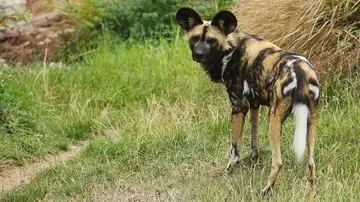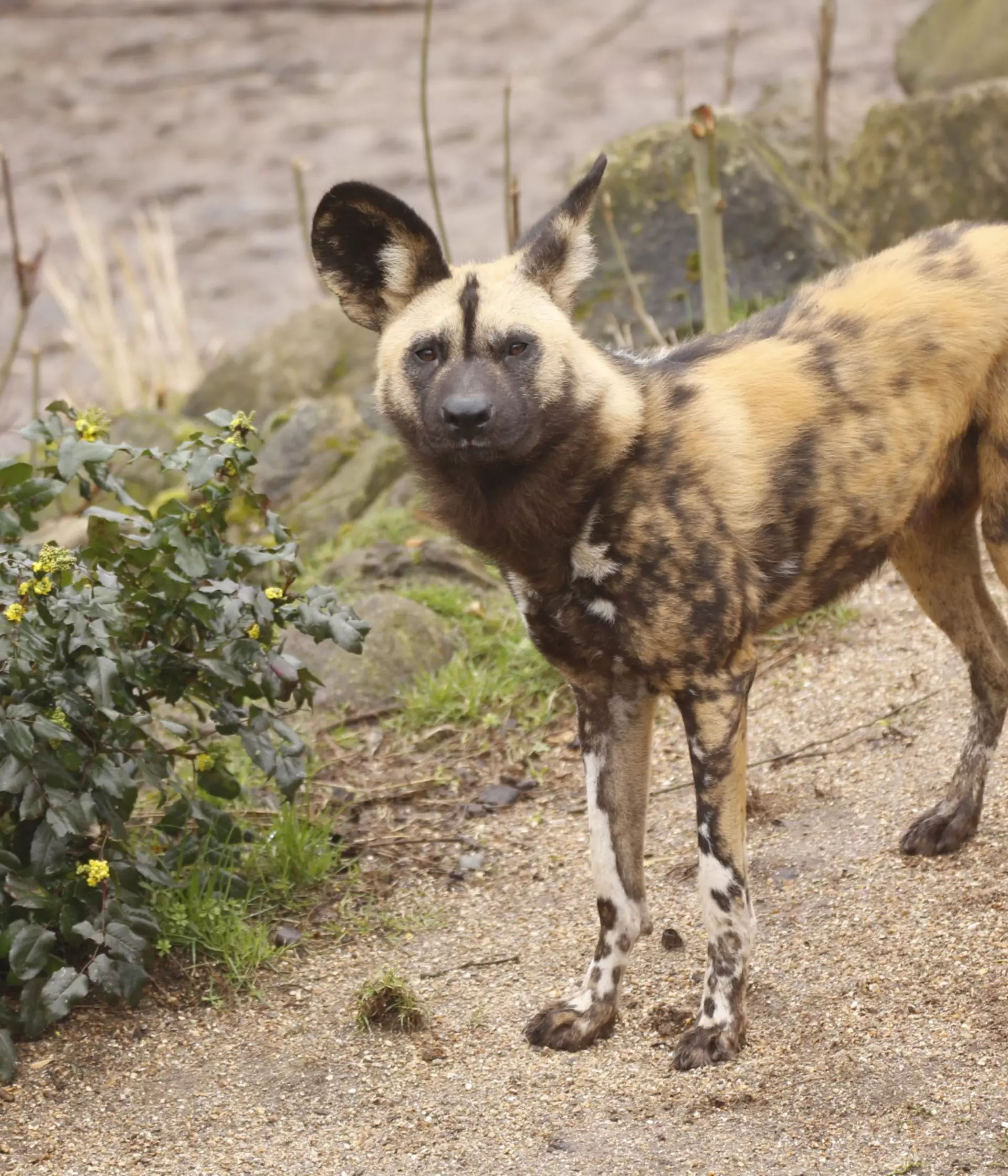
Amanda Guthrie, Head of Wildlife Health Services, ZSL
Today we said goodbye to London Zoo’s three African wild dogs due to age-related heart conditions.
As head of the veterinary team at London and Whipsnade Zoo, I oversee the wildlife health team that is responsible for the health and well-being of every animal in our care – from the tiny to the huge, from the very young to the very old.
Thanks to the incredible care the animals receive daily from their keepers and the dedicated veterinary care we give, we see many individuals reaching old age, and just as with humans, this can come with its own health challenges. Older animals can succumb to geriatric conditions such as arthritis or dental issues, and we closely monitor these to assess the impact on the individual’s quality of life.
London Zoo’s aging pack of three African wild dogs have been under the care of my team for some time now, and their recent veterinary exams sadly revealed that all three had degenerative heart conditions, which would only worsen over time.
Combined with dental issues, the increasing risk of further age-related conditions like osteoarthritis, and the need to be on lifelong medication, we could all see that euthanasia was the kindest option for these three animals, to prevent serious pain and discomfort in the future. As pack animals, they’re highly sociable and need to be together, so while it’s particularly sad to lose all three at once, it also ensured there was no additional negative impact on their wellbeing.

It’s never an easy decision to make, but it is the right one. As vets and animal carers, we have to put our feelings aside and do what we know is in the best interest of the animals.
The dogs were born at London Zoo in October 2015, as part of a 14-strong litter which was the first to be born at the zoo in more than 80 years.
We learn so much from the animals in our care that we can translate into conservation action, and this continues after they have died. Postmortem examinations will be carried out on each dog, and the insights we glean from these will help us to build knowledge which we will share with those working to conserve the dogs in zoos all over the world and in the wild.
The wild dog habitat, along with other areas in the Into Africa area of London Zoo will undergo some essential maintenance works this Autumn. Once completed, we will be moving the two older hunting dogs from Whipsnade Zoo to London for retirement, and Whipsnade will welcome a new breeding pack of wild dogs – helping us to boost the international conservation breeding programme.
